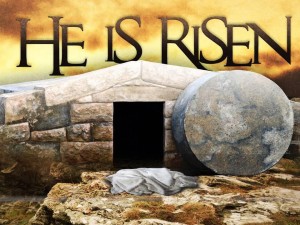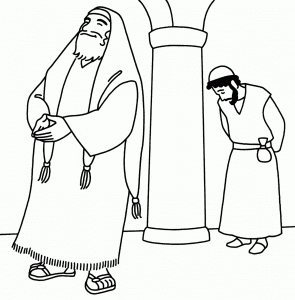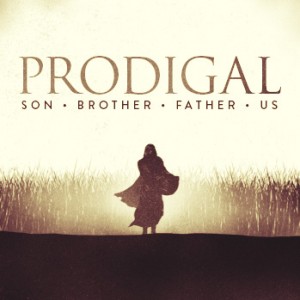 At the end of a long day, swapping stories about Jesus and his miracles, Peter’s friends may have asked him, “When do you think we will see Jesus again?” Peter could have replied, “I have no idea. In fact, I’m getting a bit frustrated with his absence. It had been easy to follow Jesus around during his earthly ministry, but now they never know where he’s going to appear.”
At the end of a long day, swapping stories about Jesus and his miracles, Peter’s friends may have asked him, “When do you think we will see Jesus again?” Peter could have replied, “I have no idea. In fact, I’m getting a bit frustrated with his absence. It had been easy to follow Jesus around during his earthly ministry, but now they never know where he’s going to appear.”
Peter, the leader, decides to make a move. “I’m tired of sitting around waiting for him. I’m out of here. I’m going fishing.” It is what he knows best. The others go along with him. I think he’s simply saying: I gotta get out of here – I need some space to unwind – figure this out! Like a lot of people, Peter is grateful that the others joined him. It’s comforting to have friends who are on the same page. And, this is where Jesus finds them. Strange isn’t it since Jesus had told them to go into Galilee and wait there for Him?
These disciples had been fishermen most of their lives before Jesus called them. Some say they suffered a moment of doubt – a scary moment of spiritual darkness. I prefer to think of it merely as a night stress reliever, not unlike the desire that many people have to go fishing today. Like us sometimes, they just wanted to get away for a while – an excuse to leave the stress of the everyday by returning to nature.
They know their trade well, they know these waters like the back of their hands – just where to get the best fish. But this is a frustrating night – nothing, nil, zip, nada! After each toss of the net, they come up empty.
Well, it’s dawn by now. They were ready to draw up the nets and call it a night, when they spied someone at the shore line – there by a charcoal fire. They don’t recognize the fellow. This time, unlike the night of the storm on the lake, Jesus does not tell them “It is I.” What he says is, “Try the other side – lower the nets on the other side of the boat.” Baffled but trusting that the stranger might know what he’s talking about, or maybe just to humor him, they switch the nets. And AMAZINGLY they pull in a huge haul! If you know anyone who goes fishing, you know they have to tell you about their catch. It appears it is such an ingrained trait even the evangelist reports it – 153 fish! The number may be symbolic or it may just be to emphasize it was a BIG catch.
Suddenly the light bulb goes off: this is a familiar voice – John cries out, “It is the Lord!” Always the impetuous one, Peter grabs his garments and drives in the swim to shore. He throws clothes ON to jump in the water – isn’t that a bit backwards? But Jews regarded a greeting as a religious act that could be done only when one was clothed.”
The disciples reach the shore; they find that Jesus had a fire prepared with fish already cooking. Jesus had all the things they needed after being out all night on the water. They found food, warmth and companionship. They found a Savior who loved them and who had all the provisions in place that they needed. Everything they lacked on that boat, they found when they came to Jesus!
The last thing we hear Jesus did is to give Peter this command, “Follow Me!” It wasn’t the first time Peter’d heard this. The last call is the same as the first. It’s a re-commissioning. We see that Jesus hasn’t changed His mind about Peter, even though Peter had denied him or any knowledge of him. Peter’s call had not changed.
What can we learn from this folksy story which is found only in John’s Gospel? What lesson is Jesus teaching us?
First, I believe we have to acknowledge that our first call is our forever all. And, I don’t mean a vocational call. Long before our call to a state in life or a ministry in the church or a career, God called to each of us: You are Mine! We may back step, misstep, wander off the path. But God still calls Follow me. Remember the hymn: What a Friend we have in Jesus. – He is our forever friend.
Another thing we see in this story … we have to be willing to wait through the dark night, the darkness, the emptiness in our boat when nothing seems to be happening. When fishing and everything else seems in vain…. Seekers go elsewhere, we have poor attendance at programs, plans fizzle, volunteers don’t show up. Be patient! As it says in the Benedictus we pray each morning: “In your tender compassion, O God, the morning sun will rise, giving list to those who wait.”
This is when we have to flexible – cast the nets of the “other side of the boat.” Look at the trends, where the fish are biting – listen to others’ suggestions and try new ideas – that’s where the 153 fish are ready to take a nibble.
Remember the part in the story about Peter being lightly clad. (Some translations say “naked”.) We have to be willing to be unclad before God – to stand naked before the Lord: put down our defenses, let up the shades and face the shadow-self so that when Jesus appears we can be clothed with the garments of innocence and integrity to greet the Lord.
When the night is over, and the dawn approaches, our ministries will be expanded, our nets will be ready and in good shape to catch the “fish” God sends to us for hospitality and membership. We’ll bring our gifts of bread and wine, made from gifts that God gave first us: grain and grapes, the fruit of the earth. God has no need of anything further. Yet God accepts the offering we bring – “the work of human hands”—and transforms them into the gift of his very presence.
As the dawn comes, Jesus meets us on the shore with everything we need. And it’s customized, personalized just for me, just for our faith community. Jesus is not only standing on the shore, he is waiting. The question for us is: how long must he wait?
~Reflection by Prioress, S. Roberta Bailey, OSB
Continue Reading








